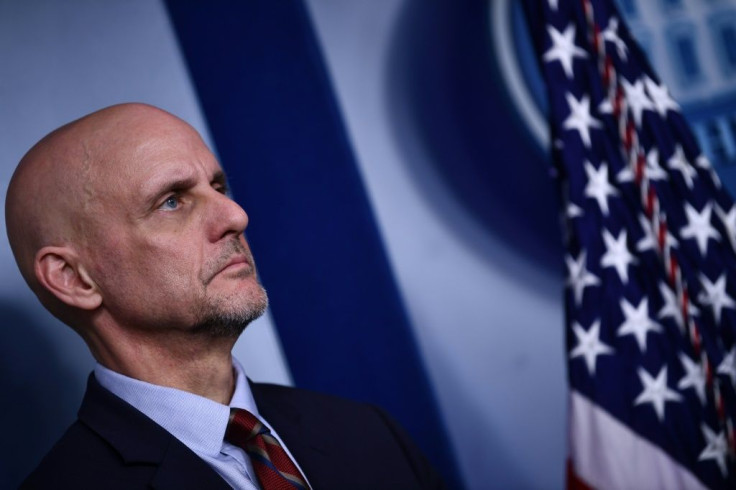Medical Group Endorses Antimalarial Drugs For Critical COVID-19 Patients Despite Experimental Basis
Trump Puts In Request To India For Hydroxychloroquine Stocks; Response Pending
KEY POINTS
- American Thoracic Society promotes use of anti-malarial drugs for COVID-19 patients
- Releases guidelines based on experimental anecdotes
- Trump requests for hydroxychloroquine stocks from India
- India banned drug's export on Saturday
- India reportedly reconsidering stance; decision pending
The American Thoracic Society endorsed the use of antimalarial drugs to treat critically ill COVID-19 patients despite the fact that the evidence on its effectiveness comes from experimental basis.
America's major medical society specializing in treating respiratory illness issued guidelines on Monday suggesting giving doses of hydroxychloroquine for coronavirus patients with pneumonia, the New York Post reported.
“To prescribe hydroxychloroquine (or chloroquine) to hospitalized patients with COVID-19 pneumonia if all of the following apply: a) shared decision-making is possible, b) data can be collected for interim comparisons of patients who received hydroxychloroquine (or chloroquine) versus those who did not, c) the illness is sufficiently severe to warrant investigational therapy, and d) the drug is not in short supply,” the Thoracic Society said.
Medical group endorses anti-malarial drug treatment for coronavirus patients https://t.co/5mJJRVqmHP via @nypost
— Charles Haney (@MisterHaney) April 6, 2020
Since the use of hydroxycholoroquine has been widely debated and criticized for the limited and anecdotal evidence regarding its usage for treatment, President Trump endorsed it on an experimental basis and Gov. Andre Cuomo likewise agreed to give it to seriously ill patients in New York hosptals in combination with Zithromax.
White House debate heats up over using an anti-malaria drug to treat COVID-19 https://t.co/gnG2fBKWzw
— TIME (@TIME) April 6, 2020
The Thoracic society said that its guidelines are based on the input of an "international task force" including doctors from a medical center currently treating coronavirus patients and said that even though the evidence about the effects of hydroxchloroquine is "contradictory", it is worth experimenting with during a public health crisis.
“We believe that in urgent situations like a pandemic, we can learn while treating by collecting real-world data,” said Dr. Kevin Wilson, chief of Guidelines and Documents at the American Thoracic Society. “There are in vitro studies that suggest that hydroxychloroquine and chloroquine have activity against SARS-CoV-2019, the virus that causes COVID-19."
However, he also said that many controlled trials from China and France experienced serious flaws and inconsistent results, therefore, the effects and benefits of using hydroxycholoroquine and chloroquine on COVID-19 patients are "unanswered questions".
There have been indications that hydroxychloroquine, an anti-malarial and anti-rheumatic drug, could be effective in treating Covid-19 -- but studies have come to conflicting conclusions. Here's what we know: https://t.co/XutZ3P8MX2
— CNN International (@cnni) April 6, 2020
Meanwhile, since President Trump's approval of using hydroxychloroquine as a COVID-19 treatment, he had reached out to Indian Prime Minister Narendra Modi on Sunday to provide the US stocks of the drug, which India manufactures in large quantitites, BBC reported.
President Trump made the request a day after India banned the export of the drug "without any exception" as India's number of positive cases reached around 3,666 and the related deaths reached more than 100.
India has placed a blanket ban on all exports of hydroxychloroquine, just as President Donald Trump called on Indian Prime Minister Narendra Modi to release more of the drug to the United States. https://t.co/Gyev6tRoum
— CNN (@CNN) April 6, 2020
However, the Indian government is reportedly reconsidering their stance and, according to local media, a decision could be made as early as Tuesday after considering present and future domestic demand of the drug.
"India definitely has capacity to cater to both global and local markets," Ashok Kumar Madan of the Indian Drug Manufacturer's association said. "Of course, domestic considerations must come first, but we have the capacity."
He also denied reports of China severely limiting the export of the active pharmaceutical ingredient (API) that is used to manufacture hydroxychloroquine and assured that even though 70% of the APIs India uses to manufacture the drug come form China, the supplies coming from the country steadily continue by "both sea and air".

© Copyright IBTimes 2024. All rights reserved.





















